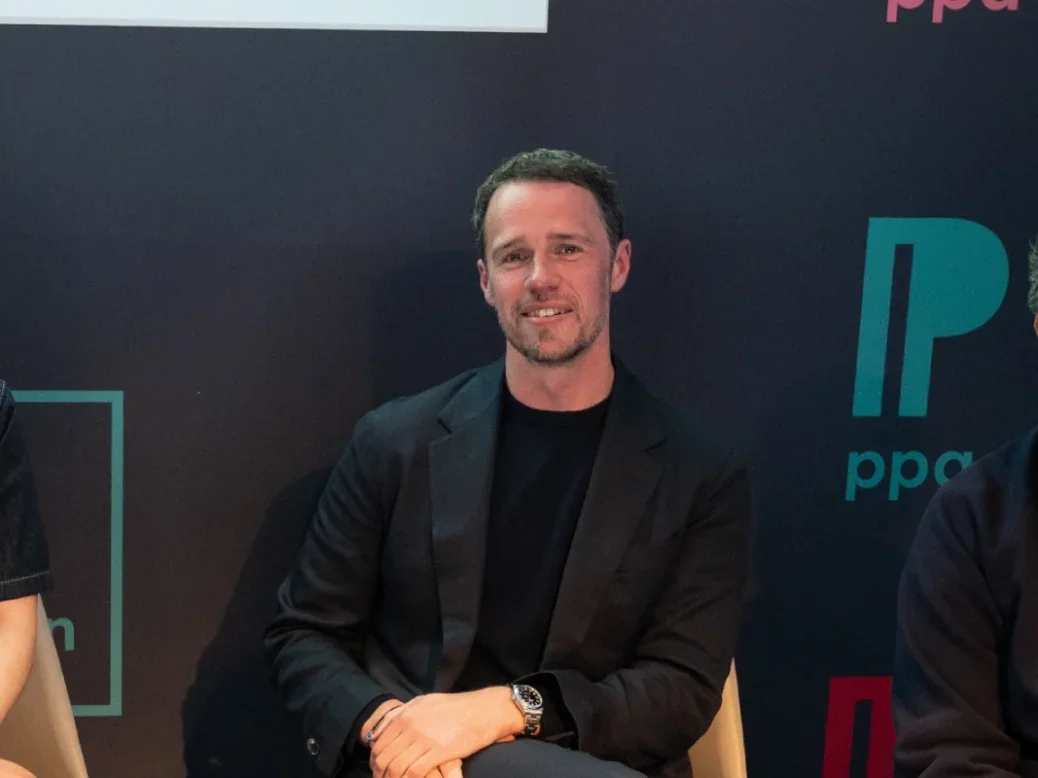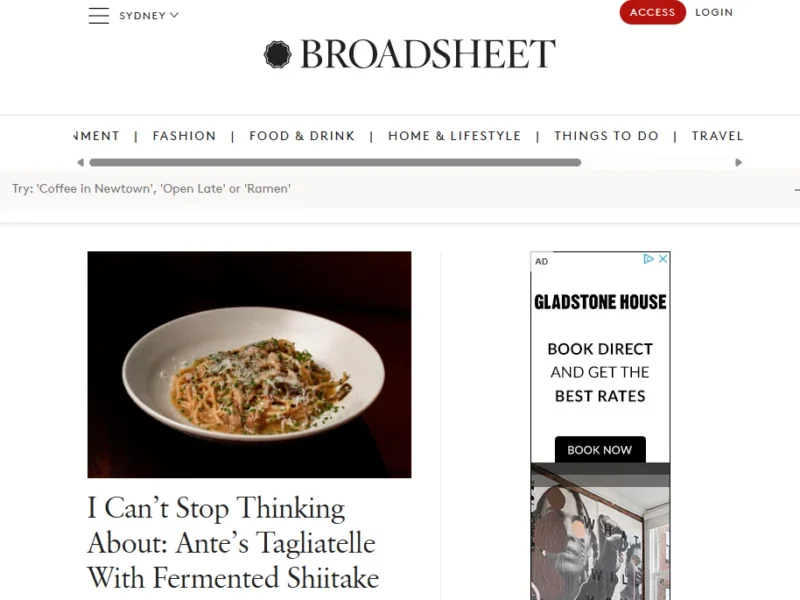
Australian culture media brand Broadsheet is preparing to launch in London in September with a full print and digital roster.
Broadsheet curates the best of food and drink, arts, culture, fashion and travel in most major Australian cities and is now coming to the UK following the pulling back of print coverage from Time Out and the Evening Standard.
Founder Nick Shelton indicated there would be a launch print edition alongside its website and app, saying that print is ‘‘a great way to build the brand”.
Appearing at the PPA Festival in London on a panel about “the death of the website” he said: “The modern media brand is about the brand at the centre, and finding and meeting audiences where they are. But the channels we use to distribute content are changing.
“It used to be Facebook and Instagram, and we have lived through the ‘Facebook apocalypse’, as we used to call it at the office, where our Facebook traffic has diminished by 80%.
“Google is clearly going through a sort of similar process right now,” he said, referring to AI Overviews which are seeing a dramatic reduction in clickthroughs for brands like Mail Online.
“There was an implied bargain before where we [publishers] gave you free content and you gave us free traffic. That was how it worked. The problem is, if you control the distribution, you control the economics. So those platforms slowly, slowly, slowly strangled us.
“The advertising market continues to grow, but publishers are getting a smaller share.
“But at Broadsheet we feel weirdly optimistic, because we think what we have to offer our audiences hasn’t changed.”

Shelton said part of the solution will be the use of AI to help process its content to answer people’s questions about what to do in their city.
“When you come to Broadsheet, the idea is that you might consume AI-generated content that’ll be based on the data and the information that we’ve reported on,” he said.
“Rather than going through ChatGPT… and all of the crap from the internet they’re going to give you, the best way to read our content using AI will actually be on the Broadsheet platform.”
Broadsheet also sees newsletters as central to its offering. Shelton said: “That’s where we get the highest frequency, the highest engagement, and the least churn.
“They’re the people who have signed up to our brand, so for us that’s paramount. We love those subscribers and we want to keep building them.”
How Broadsheet makes money
Broadsheet was cited as a case study in a new report for the PPA by Enders Analysis called “Rewriting the media playbook”.
Since launching in 2009 it now claims to reach an audience of 10 million in Australia and New Zealand and has never raised investment (growing out of profitable cashflow).
Broadsheet tells prospective advertisers they cannot pay to be listed on the website but can pay for sponsored content, banner advertising and podcast advertising.
The report says: “Broadsheet has identified London as the most culturally exciting city in the world right now. There is a litany of small publishers and influencers who cover different elements of the city to different degrees, but Broadsheet believes there is no single dedicated resource focused purely on culture in London
“They aim to appeal to a large target audience of cultural and relatively affluent city dwellers, in addition to a large Australian community for in-built brand recognition.”
Email pged@pressgazette.co.uk to point out mistakes, provide story tips or send in a letter for publication on our "Letters Page" blog
